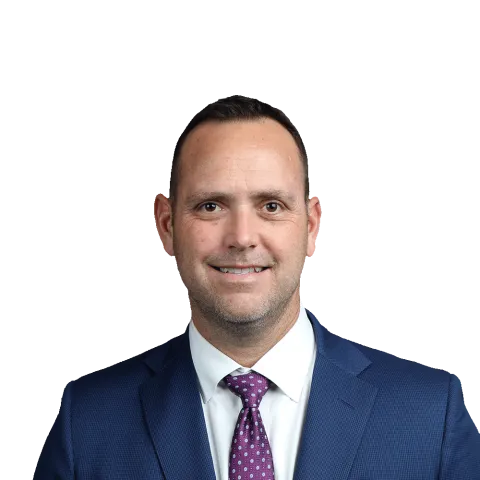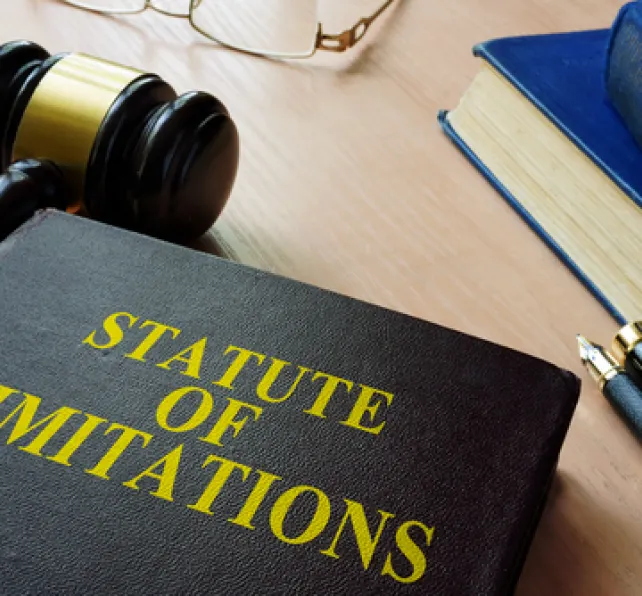Results may vary depending on your particular facts and legal circumstances. The attorney featured above is licensed in Florida. For a full list of attorneys in your state please visit our attorney page.
WHAT IS THE FLORIDA DISCRIMINATION LAW PROCESS?
From workplace to housing discrimination, we fight for victims to seek the justice they deserve.
Results may vary depending on your particular facts and legal circumstances. The attorney featured above is licensed in Florida. For a full list of attorneys in your state please visit our attorney page.
Florida Discrimination Law Process
If an employer takes adverse action against you based on your race, color, gender, religion, or for another discriminatory reason, they are breaking the law. Victims of discrimination deserve justice and could be entitled to damages such as back pay, lost benefits, and others.
Discrimination is unfair, immoral, and illegal. Employees can and should fight back. However, the discrimination law process in Florida is anything but straightforward and can involve both federal and state agencies. Contact Morgan & Morgan now for free and find out how we could help you get justice.
Discrimination in the Workplace
According to the federal agency tasked with enforcing discrimination laws, the U.S. Equal Employment Opportunity Commission (EEOC), discrimination in the workplace is unlawful, including:
- Age discrimination
- Discrimination based on race or color
- Sex discrimination
- Discrimination based on religion
- Pay discrimination
- Discrimination based on national origin
- Pregnancy discrimination
- Retaliation
- Discrimination based on sexual orientation and gender identity
Florida State Law
On a state level, the Florida Civil Human Rights Act of 1992 also makes it illegal for employers to discriminate against individuals because of their race, color, sex, pregnancy, religion, sex, national origin, disability, age, or marital status.
Despite laws designed to eliminate discrimination, the EEOC dealt with a staggering 67,448 charges of workplace discrimination in the year 2020 alone. According to the agency, retaliation makes up the bulk of all discrimination claims, accounting for more than half of all cases, followed by disability, race, and sex discrimination.
You Could Have a Discrimination Case
If you or a family member suffers discrimination at work, you do not have to stand for it and could file a claim. Mistreatment can involve overt hostility and name-calling or include more subtle actions such as denying a promotion or excluding executives from board meetings. While discrimination can come in a variety of forms, common cases involve:
Illegal Retaliation
Retaliation in the workplace can result in:
- Demotion
- Cut in pay or bonus
- Termination of employment
It is generally unlawful for an employer to retaliate when an employee made a discrimination complaint or assisted with another employee’s claim. Unfortunately, proving that an employer retaliated against you can be tricky.
In an at-will state such as Florida, employers are generally permitted to fire an employee without having to give a reason. The onus will be on the fired employee to prove illegal retaliation. However, an experienced employment attorney could help you gather evidence to prove retaliation.
Sex Discrimination
Sex discrimination is illegal according to federal and Florida state law. Sexual discrimination disputes can occur with hiring, firing, promotion, and pay discrepancies. For example, if an employer promotes or hires a man with fewer qualifications than a woman, the woman could have a claim. There can be many other instances of sex discrimination involving:
- Sexual harassment
- Being denied benefits and pay rises
- Being forced out on leave
- Receiving fewer work projects than other employees
However, for sex discrimination to be considered illegal, it must negatively affect the following “terms and conditions” of employment: job responsibilities, sick days, vacation days, work hours, salary, performance evaluation standards, and others.
Hostile Work Environment and Harassment
According to the EEOC, for workplace harassment to be considered illegal, it must:
- Become a condition of continued employment
OR
- Be severe enough to create an intimidating, hostile, or abusive work environment
One-off incidents and petty slights are generally not considered unlawful. However, an isolated incident of extreme misconduct could be illegal. Discriminatory harassment typically occurs over a period of time and can involve jokes, images, and physical conduct.
While some discriminatory behaviors, such as name-calling, can be obvious, others may be more subtle. For example, if you are in a senior position and not allowed to join board meetings that others in similar posts attend, you could have a discrimination case.
Race Discrimination
Title VII of the 1964 Civil Rights Act, 42 U.S.C. 1981, and the Florida Civil Rights Act of 1992 all prohibit discrimination based on race. Examples of race discrimination in the workplace can include but are not limited to:
- Unfavorable treatment with regards to pay and benefits
- Denying promotion or job assignments
- Harassment and racial slurs
- Displaying racially offensive symbols in the workplace
- Demotions and wrongful terminations
Since most employers are well aware of the illegality of race discrimination, they may try to disguise a discriminatory act. However, an employment attorney could help you uncover and prove an employer’s underlying discriminatory motive.
Pregnancy Discrimination
Discrimination involving pregnancy, childbirth, or related medical conditions is illegal. Pregnant women are entitled to reasonable accommodations open to other employees with a temporary disability or other health condition. Pregnancy discrimination can include:
- Refusal to hire
- Firing due to pregnancy
- Harassment and intimidation
- Forcing a pregnant woman to take leave
- Changing job responsibilities
- Denying a promotion due to pregnancy
If an employer refuses a reasonable request for accommodation, denies sick leave, or refuses to let you return to your job after maternity leave, you could have a pregnancy discrimination claim.
Other Discrimination Claims
There can be many other examples of discrimination in the workplace based on an employee’s disability, age, religion, and even genetic information. If you experienced any type of discrimination, speaking to an employment attorney can help you determine whether you are a victim of discrimination and could have legal recourse.
What Is the Process for Discrimination Law in Florida?
You generally have two options to file a discrimination claim in Florida:
- Filing a claim with the Florida Commission on Human Rights (FCHR)
OR
- Filing a claim with the Equal Employment Opportunity Commission (EEOC)
Since the two agencies work hand in hand, you usually only need to file your claim with one and inform it of your intention to “cross-file” with the other agency. However, it can be a good idea to let an attorney walk you through your options before filing your claim, as the agency you file with could affect your court case later on.
Smaller employers are typically covered by Florida law, while the federal EEOC covers larger employers with more than 15 employees. However, depending on your case, an attorney might suggest filing with the EEOC in the first instance to better protect your federal discrimination case.
Filing a Lawsuit
Typically, a federal discrimination case must first go to the EEOC. If the agency deems your case valid, it will issue a “Notice of Right to Sue,” giving you the green light for filing a lawsuit. Once you receive the notice, you only have 90 days to file your case in a federal or state court. There can be exceptions where an EEOC Notice of Right to Sue is not required, such as some age discrimination and equal pay claims.
If you filed a state discrimination case with the FCHR, you can file a lawsuit after the case has been pending for 180 days, provided the agency has not made a “no cause” determination.
The Timeframe for Filing a Discrimination Case Is Limited
If you suffered from workplace discrimination, timely action is essential. There are usually several agencies and deadlines involved when filing a discrimination claim. Timelines can be prohibitively short. Therefore, contact the FCHR or EEOC as soon as possible to file a claim.
Generally, to preserve your right to legal recourse under state law, you have to file your claim with the FCHR within one year of your discrimination incident. Concerning federal law, you have only 180 days to file a claim with the EEOC, starting on the day you were discriminated against. However, the EEOC deadline can be extended to 300 days, depending on state or local discrimination laws.
Since the deadlines for filing with the appropriate agency can be short, consulting with an attorney as soon as possible after you experienced discrimination can be vital for protecting your rights.
A Lawsuit Must Commence Within Four Years
You should generally file a lawsuit within four years of the discriminatory action or incident. However, once the FCHR issued a “probable cause” determination, the timeframe for filing your case is only one short year. It is crucial to note that if your lawsuit is not filed within the appropriate time frame, you could lose your right to pursue justice and damages in court.
100,000+ Five Star Reviews
The reasons why clients trust Morgan & Morgan.
Results may vary depending on your particular facts and legal circumstances. Based on select nationwide reviews.
Our Results
How It Works
Unsure what to do next? With 35 years of experience, our personal
injury lawyers will guide you every step of the way.
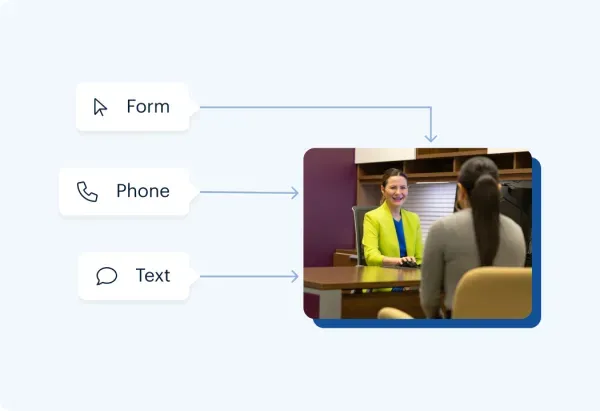
Contact Us 24/7 - It’s Free
Start your claim
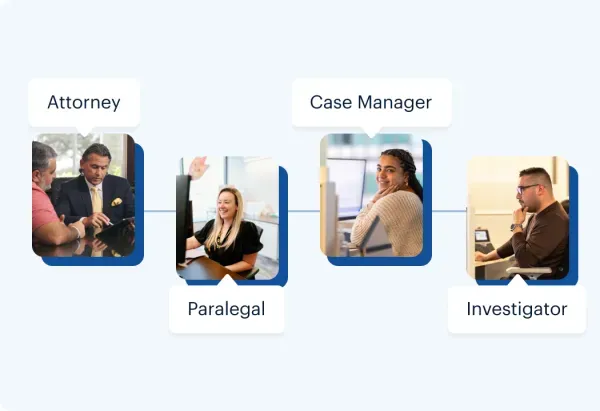
Meet your dedicated attorney
Meet the attorneys
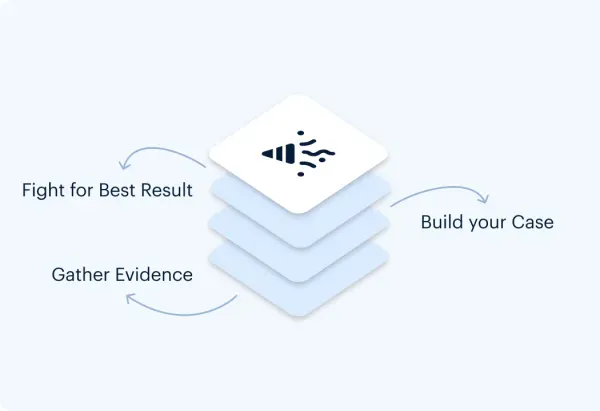
We fight for more
Learn more about the case process
Results may vary depending on your particular facts and legal circumstances. The attorneys shown in these photos may not be licensed in your state. To find an attorney licensed in your area, please visit our attorney page.
Local Care
Backed by America’s Largest Injury Law Firm.
$30 Billion
Recovered for clients
nationwide700,000+
Clients and families
served1,000+
Attorneys across
the country1
Click may change your life
The attorney featured above is licensed in Florida. For a full list of attorneys in your state please visit our attorney page.
Results may vary depending on your particular facts and legal circumstances.
In the Community
Discover the local Morgan & Morgan experience with news, events, and partnerships.
Learn More
Injured and not sure what to do next?
We'll guide you through everything you need to know.
What Can I Do to Protect Myself?
If you are being discriminated against, make sure to collect evidence of incidents and their dates and times. Note down details of any eyewitnesses. If the incident caused you to consult with a doctor or mental health professional, keep documentation of the visits and any medical bills. Any information and evidence you can gather will be helpful if you decide to pursue action later on.
Most importantly, speaking to an attorney can help you get clear on your options if you are mistreated at work. Morgan & Morgan’s employment attorneys are committed to protecting and helping victims of discrimination. We offer free consultations where you can get advice and help.
When Should I Speak to a Discrimination Attorney?
You can potentially file a discrimination claim on your own. However, there are some situations in which it can be crucial to have an experienced employment lawyer in your corner, including when:
- You are running out of time for filing a claim
- You are suffering from workplace harassment and do not know where to turn
- An employer is pressuring you to sign a “release of claims” form
- You have been unfairly terminated and do not know what to do
- You are thinking of filing a lawsuit against your employer in state or federal court
- You are dissatisfied with the response from the EEOC or FCHR
Since the burden falls on you to prove discrimination, speaking to a seasoned employment lawyer as soon as possible can be essential. A dedicated attorney can be your best advocate and help you navigate the process for discrimination law in Florida.
Which Types of Damages Could I Receive?
Depending on your specific case, you could be entitled to various damages, including:
Back and Front Pay
You could potentially recover any back pay owed to you by your employer as well as any future lost income due to discrimination, including:
- Wages
- Overtime
- Tips
- Commission
Compensatory Damages
You could also receive compensation for any out-of-pocket cost and other damages you incurred as a result of workplace discrimination, such as:
- Costs associated with finding a new job or retraining
- Medical expenses incurred due to discrimination
- Awards for emotional suffering
Punitive Damages
In instances where an employer acted particularly maliciously, employees could also receive punitive damages. Punitive damages are generally designed to punish the employer.
Depending on your unique discrimination case, you could also be entitled to additional remedies such as reinstatement, salary adjustment, restoration of benefits, and others. An attorney from our firm could advise you on the types of damages you could pursue with a discrimination case.
How Can an Employment Attorney Help Me?
Discrimination cases can be complex and challenging. Moreover, depending on your employer, you might have to stand up against a powerful company with considerable resources and a team of lawyers at hand for fighting your claim. Employers and their lawyers are experienced in handling employment-related claims, potentially leaving you at a disadvantage without adequate legal representation.
An attorney can help to:
- Determine whether you have a discrimination case
- File your claim with the appropriate federal or state agency
- Ensure that you are not missing vital deadlines
- Gather and present evidence to support your case
- Present your case in the strongest terms at court
Besides knowing the federal and state laws applying to your discrimination case, your attorney will also know how to protect you from unfair tactics of an employer or attorneys.
We Fight for Victims’ Rights
Discrimination at work can be emotionally and financially disastrous for victims, destroy career prospects, and impact home lives negatively. Unfortunately, in many cases, getting justice can seem like an uphill struggle.
However, you do not have to deal with the convoluted Florida discrimination law process on your own. Morgan & Morgan’s tenacious employment lawyers are determined to help victims of unscrupulous employers get justice and compensation. Get started now and contact us to find out about your legal options in a free case review.






